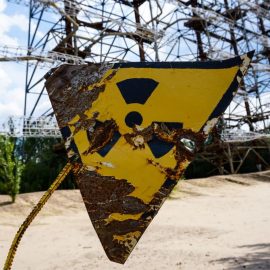
This is a free excerpt from one of Shortform’s Articles. We give you all the important information you need to know about current events and more.
Don't miss out on the whole story. Sign up for a free trial here .
Why are ultra-processed foods so bad for you? Are all ultra-processed foods equally bad?
From frozen pizzas to protein bars, ultra-processed foods dominate American diets. However, the hidden costs of these “foods” include heart disease, diabetes, cancer, metabolic issues, and more.
Here’s why you should steer clear of anything that’s ultra-processed.
Are Ultra-Processed Foods Really That Bad?
That frozen pizza in your freezer and the protein bar in your gym bag share a concerning secret: they’re both ultra-processed foods, a category of products that now makes up more than half of Americans’ daily calories. But why are ultra-processed foods so bad for you? They’re highly engineered and are often modified through chemical processes to make them taste irresistible.
While ultra-processed foods are energy-dense, they often lack the nutritional value of more traditional foods. And while their convenience has revolutionized how we eat, mounting evidence suggests the additives they contain may undermine our health. From increased risks of heart disease and Type 2 diabetes to potential links with depression and dementia, what scientists have observed so far about the effects of these foods on the human body has sparked intense debate in the medical community.
What Does “Ultra-Processed” Mean?
While traditional processing methods like canning tomatoes or fermenting cabbage into kimchi help preserve natural foods, ultraprocessing creates something fundamentally different. These products are industrial formulations, often made from extracted substances rather than whole ingredients. The transformations involved are dramatic: Corn becomes high-fructose corn syrup. Soy becomes soy protein isolate. Wheat becomes refined flour, stripped of its natural nutrients.
These extracted and modified ingredients are then combined with preservatives, emulsifiers, artificial colors, and flavors to create products engineered to taste delicious. The result? Foods that are dense in calories but poor in nutrients, often high in added sugars, unhealthy fats, and salt. These foods are everywhere you turn: in our grocery stores, in our vending machines, in convenience stores, and in our pantries at home. This radical transformation of our food supply has happened relatively recently. It’s only been since the 1980s that these products have increasingly dominated supermarket shelves, both in the United States and elsewhere in the world. This rapid rise in consumption of ultra-processed foods has already been identified as a major dietary cause of the global rise in obesity and related diseases.
Why We Crave Ultra-Processed Foods
If we know they’re not particularly healthy, why do ultra-processed foods have such a powerful hold on American diets? Experts say the appeal of these foods starts with their convenience. These foods offer what many busy families need: they’re quick, reliable foods that require minimal preparation and won’t spoil before you can get around to using them. For many households, the option to heat up a frozen dinner, an instant soup, or a box of macaroni and cheese can mean the difference between eating a hot meal and not eating a proper dinner at all.
Cost is another crucial factor. In many communities, especially in “food deserts” where access to fresh foods is limited, ultra-processed foods often represent the most affordable way to feed a family. When you’re stretching a tight budget, the long shelf life of these products also means less food waste. And it means fewer trips to the grocery store than if everything you bought were fresh and had a short shelf life.
The Hidden Costs of Ultra-Processed Foods
A microwaveable meal might save you time today, but research suggests it could cost you tomorrow. Scientists have been uncovering an increasingly concerning picture of how ultra-processed foods affect our bodies, and their findings go far beyond the obvious concerns about calories and weight gain.
Ultra-processed foods are often loaded with saturated fat, salt, and sugar. Yet they contain few of the nutrients our bodies need. Worse yet, when these foods dominate our diets, they tend to squeeze out more nutritious options. The health implications are sobering. Research has linked regular consumption of ultra-processed foods to an array of serious conditions:
- Heart health: Studies show increased risks of high blood pressure, cardiovascular disease, heart attacks, and strokes.
- Metabolic issues: Higher rates of obesity and Type 2 diabetes have been linked to the consumption of ultra-processed foods.
- Cancer risk: Certain types of cancer appear more frequently in heavy consumers of these foods.
- Mental health: ultra-processed foods have also been linked to increased rates of depression and other mental health disorders.
| Van Tulleken’s Experiment on Himself In his book Ultra-Processed People, Chris Van Tulleken conducted an experiment on himself to study the effects of UPF. He began by eating no UPF for a month, and then for the next month he ate a diet consisting of 80% UPF. Van Tulleken describes how his primarily UPF diet made him anxious, exhausted, achy, and less productive. At the end of the four weeks, he’d gained 13 pounds. Tests showed that the hormones in his body that are involved in eating weren’t functioning properly: -the hormone that signals fullness (leptin) hardly responded to a large meal, -the hunger hormone (ghrelin) was extremely high just after he ate, and -the hormone that signals fat storage (also leptin) increased fivefold. In addition, MRI scans showed increased connectivity between the parts of his brain involved in desire and reward and the parts involved in hormonal control of food intake. The brain pathways didn’t change, but the information flowing through them did—and over time, those brain circuits themselves could change, too. All of this suggested that van Tulleken’s eating was increasingly governed by subconscious signals telling him to eat more. |
Are Some Ultra-Processed Foods Worse Than Others?
While the overall evidence against ultra-processed foods is concerning, recent research suggests that not all of these foods carry the same risks. A 2024 Harvard study of more than 200,000 adults found that two categories of ultra-processed foods stood out as particularly problematic: sugar-sweetened drinks and processed meats. When these two categories were removed from the analysis, most of the cardiovascular risks associated with ultra-processed foods disappeared. Surprisingly, some ultra-processed foods—including breakfast cereals, flavored yogurts, and certain savory snacks—were actually associated with reduced health risks.
Now What?
Scientists are still figuring out what it is about ultra-processed foods that can negatively affect our bodies and minds. We still aren’t sure whether it’s the additives, the processing methods, or some combination that poses the greatest risks. Plus, new research is challenging old assumptions and shaking up what felt like established science.
But experts say addressing this issue isn’t just about individual choices. If we want to reduce the amount of ultra-processed foods in the American diet, that would require action at the societal level, including policy changes like taxation on ultra-processed foods, marketing restrictions, improved school lunch programs—and programs to address the economic inequalities that make ultra-processed foods the only affordable option for many families. In the meantime, while completely avoiding ultra-processed foods may not be realistic for most people, being aware of their presence in your diet and making the conscious choice to reduce your reliance on them could be a practical first step toward better health.

Want to fast-track your learning? With Shortform, you’ll gain insights you won't find anywhere else .
Here's what you’ll get when you sign up for Shortform :
- Complicated ideas explained in simple and concise ways
- Smart analysis that connects what you’re reading to other key concepts
- Writing with zero fluff because we know how important your time is






